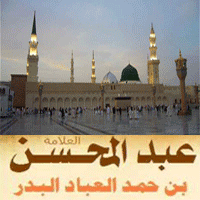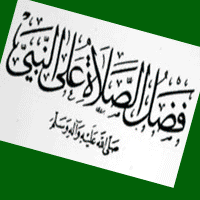His Rights
Allah(Almighty) has honoured us by sending Prophet Muhammad (Peace and blessings of Allah upon him) and has favoured us by making known his message.
He said:
Certainly did Allah confer [great] favour upon the believers when He sent among them a Messenger from themselves, reciting to them His verses and purifying them and teaching them the Book [i.e., the Qur'an] and wisdom, although they had been before in manifest error. (3:164)
We continue with the mention of rights of the Prophet (Peace and blessings of Allah upon him) upon his followers:
5. Spreading his message
Loyalty to the Messenger of Allah (Peace and blessings of Allah upon him) includes spreading his invitation to Islam throughout every part of the earth, because he (Peace and blessings of Allah upon him) said,
"Convey from me, even if only one verse." (Al-Bukhari)
He (Peace and blessings of Allah upon him) also said,
Beyond a shadow of doubt, the biography of Prophet Muhammad (Peace be upon him) manifestedly
represents an exhaustive embodiment of the sublime Divine Message that he communicated in order
to deliver the human race from the swamp of darkness and polytheism to the paradise of light and
monotheism.
An image, authentic as well as comprehensive, of this Message is therefore only
attainable through careful study and profound analysis of both backgrounds and issues of such a
biography.
Linguistically, the word “Arab” means deserts and waste barren land well-nigh waterless and
treeless. Ever since the dawn of history, the Arabian Peninsula and its people have been called as
such.
The Arabian Peninsula is enclosed in the west by the Red Sea and Sinai, in the east by the Arabian
Gulf, in the south by the Arabian Sea, which is an extension of the Indian Ocean, and in the north
by old Syria and part of Iraq. The area is estimated between a million and a million and a quarter
square miles.
Arab kinfolks have been divided according to lineage into three groups:
Perishing Arabs: The ancient Arabs, of whose history little is known, and of whom were ‘Ad,
Thamûd, Tasam, Jadis, Emlaq, and others.
Pure Arabs: Who originated from the progeny of Ya‘rub bin Yashjub bin Qahtan. They were also
called Qahtanian Arabs.
Arabized Arabs: Who originated from the progeny of Ishmael. They were also called ‘Adnanian
Arabs.
The pure Arabs – the people of Qahtan – originally lived in Yemen and comprised many tribes, two
They went on to say that there were exactly forty fathers between ‘Adnan and Abraham (Peace be
upon them).
Nizar, Ma‘ad’s only son , had four sons who branched out into four great tribes; Eyad, Anmar, Rabi‘a
and Mudar. These last two sub-branched into several septs. Rabi‘a fathered Asad, ‘Anazah, ‘Abdul
Qais, and Wa’il’s two sons (Bakr and Taghlib), Hanifa and many others.
Mudar tribes branched out into two great divisions: Qais ‘Ailan bin Mudar and septs of Elias bin
This story spoke of one journey – at least – before Ishmael became a young man. Al-Bukhari, on
the authority of Ibn ‘Abbas, reported the other three journeys; a summary of which goes as follows:
When Ishmael became a young man, he learned Arabic at the hand of the tribe of Jurhum, who
loved him with great admiration and gave him one of their women as a wife, soon after his mother
died. Having wanted to see his wife and son again, Abraham came to Makkah, Ishmael’s marriage,
Abraham returned to Palestine where Hagar gave birth to Ishmael. Sarah became so jealous of
Hagar that she forced Abraham to send Hagar and her baby away to a plantless valley on a small
hill in Hijaz, by the Sacred House, exposed to the wearing of floods coming right and left. He chose
for them a place under a lofty tree above Zamzam near the upper side of the Mosque in Makkah
where neither people nor water was available, and went back to Palestine leaving with his wife and
1. Azd: Who, under the leadership of ‘Imran bin ‘Amr Muzaiqbâ’, wandered in Yemen, sent
pioneers and finally headed northwards. Details of their emigration can be summed up as
follows:
8
2. Tha‘labah bin ‘Amr left his tribe Al-Azd for Hijaz and dwelt between Tha‘labiyah and Dhi Qar.
When he gained strength, he headed for Madinah where he stayed. Of his seed are Aws and
Khazraj, sons of Haritha bin Tha‘labah.
Haritha bin ‘Amr, known as Khuza‘a, wandered with his folks in Hijaz until they came to Mar
When talking about the Arabs before Islam,we deem it necessary to draw a mini-picture of the
history of rulership, princeship, sectarianism and the religious dominations of the Arabs, so as to
facilitate the understanding of emergent circumstances when Islam appeared.
When the sun of Islam rose, rulers of Arabia were of two kinds: crowned kings, who were in fact not
independent; and heads of tribes and clans, who enjoyed the same authorities and privileges
possessed by crowned kings and were mostly independent, though some of whom could have shown


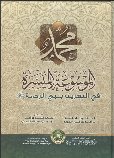
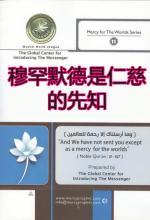
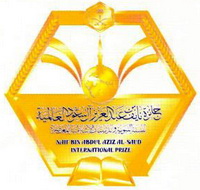

.jpg)
